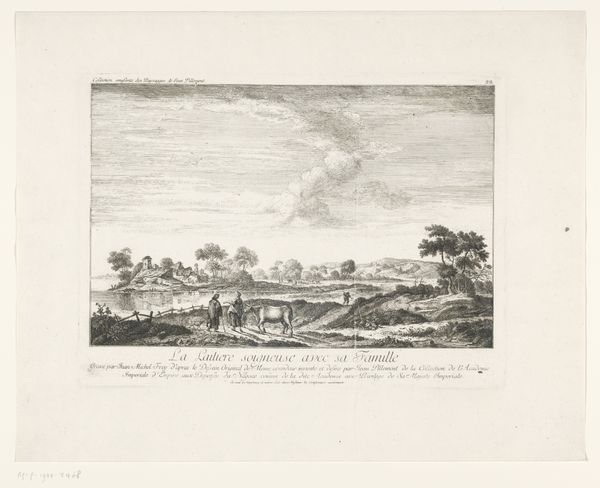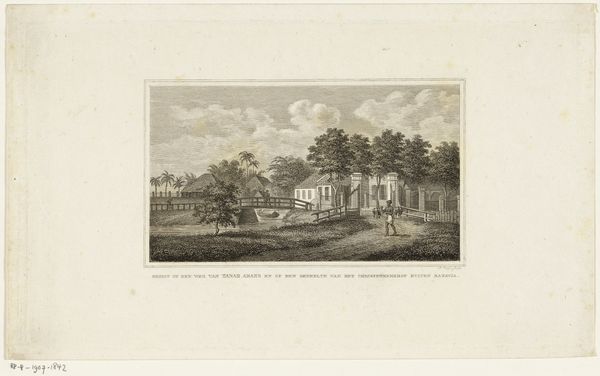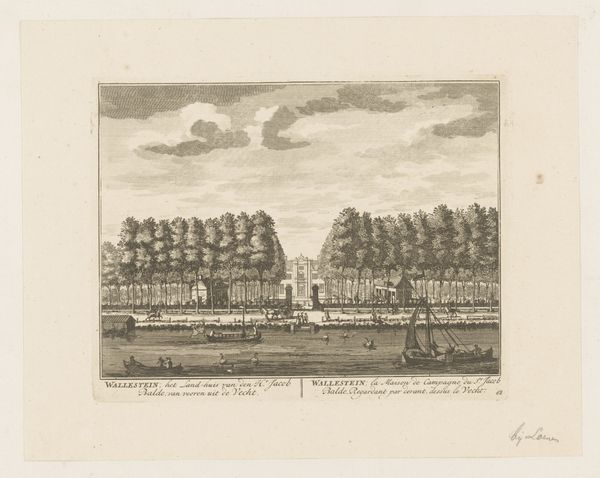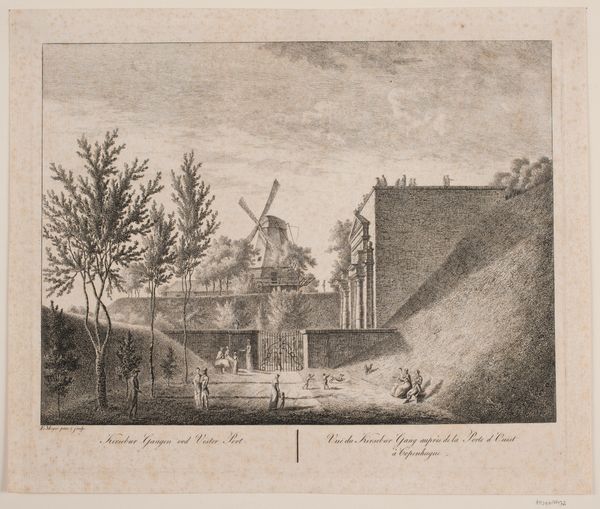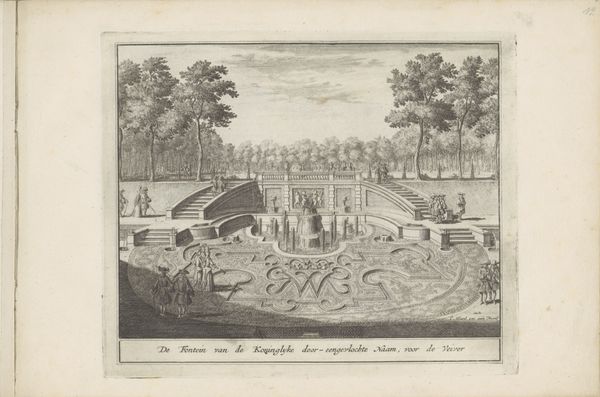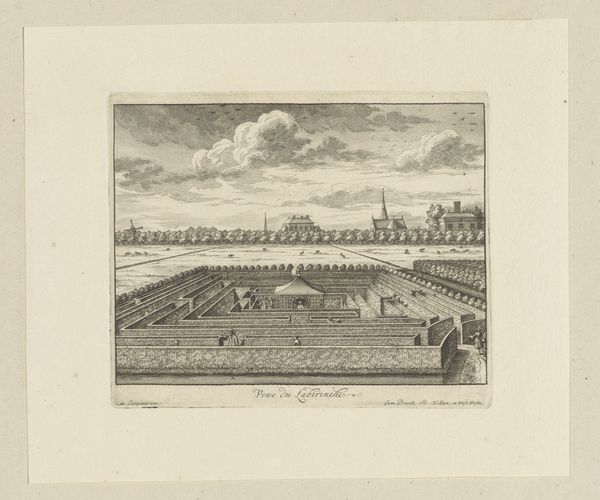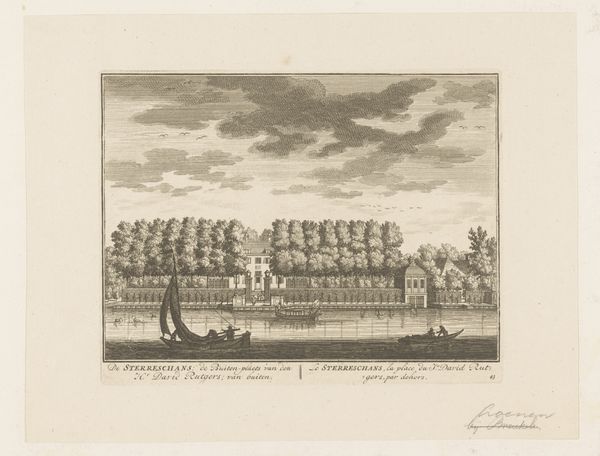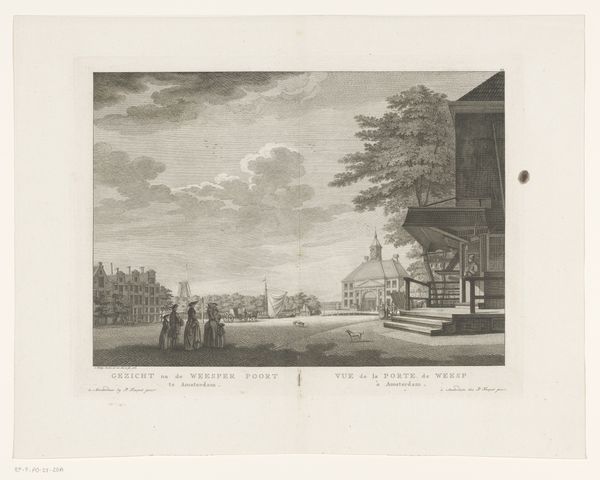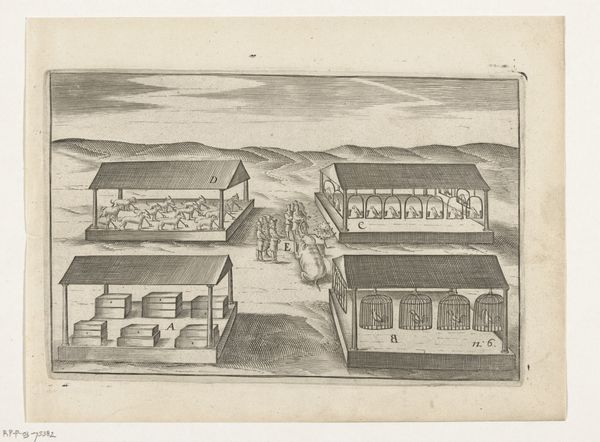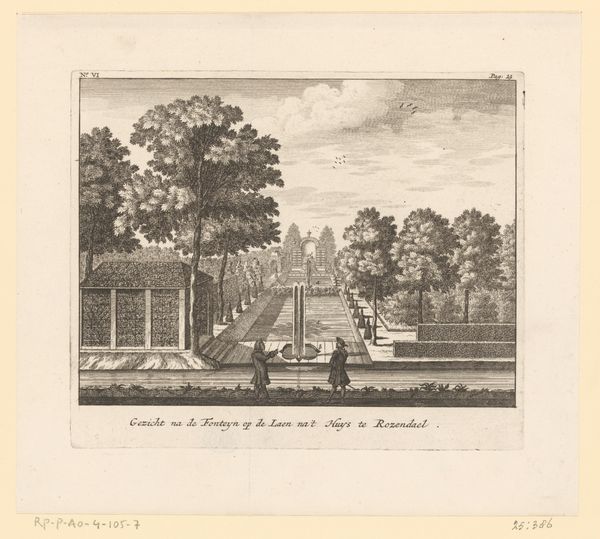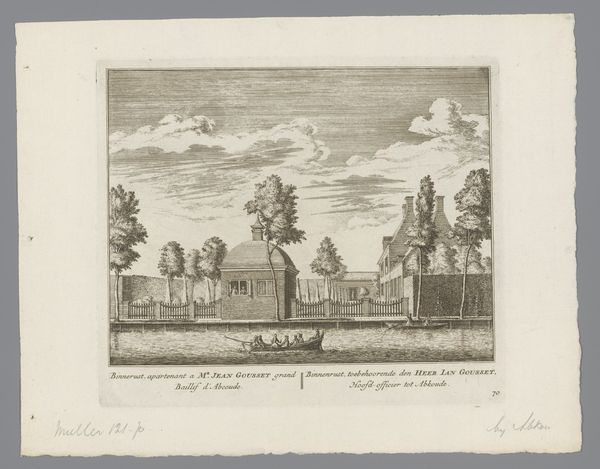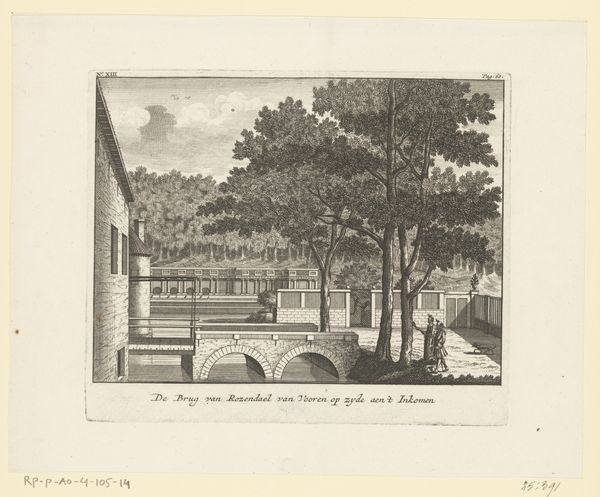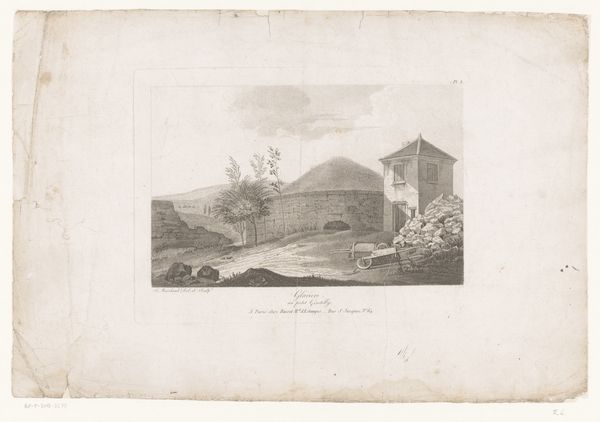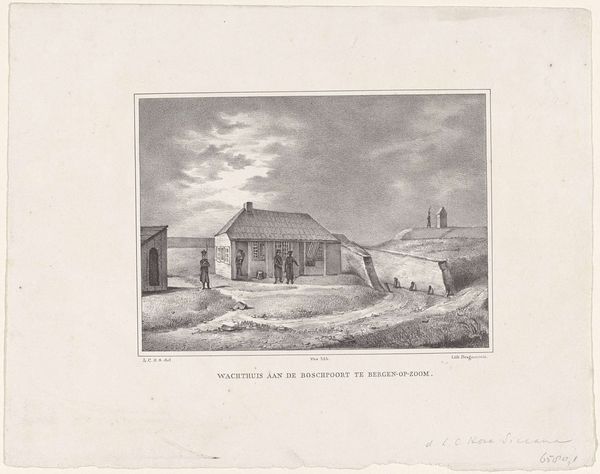
print, engraving, architecture
#
dutch-golden-age
# print
#
landscape
#
engraving
#
architecture
Dimensions: height 171 mm, width 205 mm
Copyright: Rijks Museum: Open Domain
Editor: Here we have "View from Castle Rosendael" by Jan Smit, from 1718. It's an engraving. What strikes me is how… staged everything feels. The garden is almost like a tiled floor. What do you see in this print? Curator: Well, let’s think about the labor involved. An engraving like this wasn’t just about aesthetics. It was a *reproduction*, meant to circulate. How do you think the making of this image impacted ideas around landscape and ownership at the time? Editor: So, like… were these prints a way to advertise the wealth and control of the Rosendael estate? Curator: Precisely. Consider the social context. Land was power. Showing off manicured gardens, precisely ordered, displayed command over nature itself. Think about the division of labor, from the gardeners to the engraver. The print *documents* that claim. But isn't it interesting to note how artificial nature is presented through art production? What does it say about materiality of such work? Editor: I guess the print flattens out all the actual labor. It makes everything look easy and elegant. Curator: And what kind of consumption this image allowed for? Owning such an image granted symbolic entrance into certain circles and mindsets of the elites. Editor: It's a powerful perspective to think of art as documenting the structures of labor and consumption of its time. Curator: Absolutely. Looking at art through a materialist lens helps reveal how social relations and power dynamics were produced and reproduced through material objects.
Comments
No comments
Be the first to comment and join the conversation on the ultimate creative platform.
